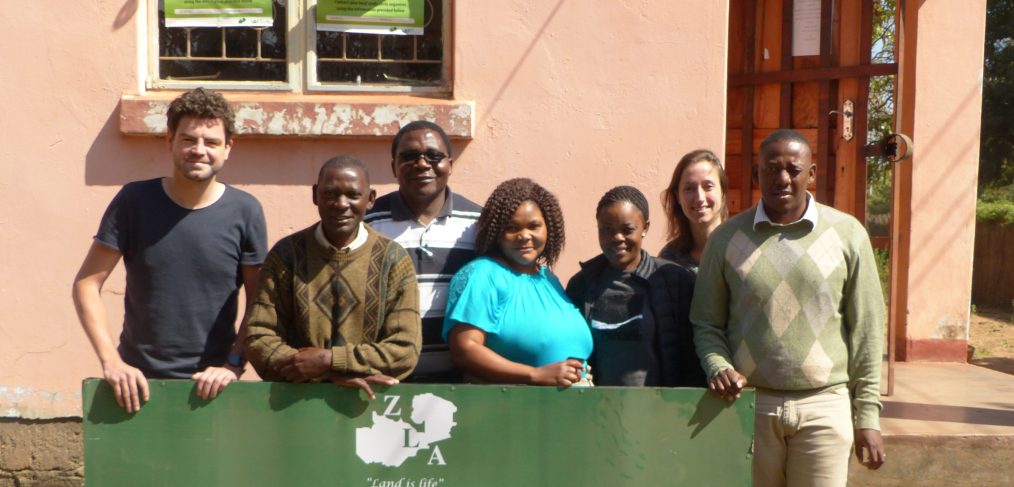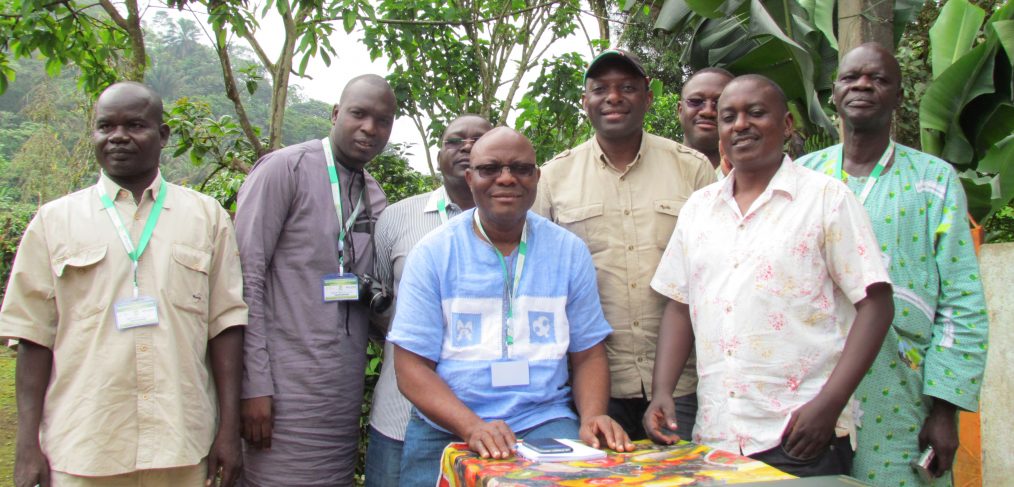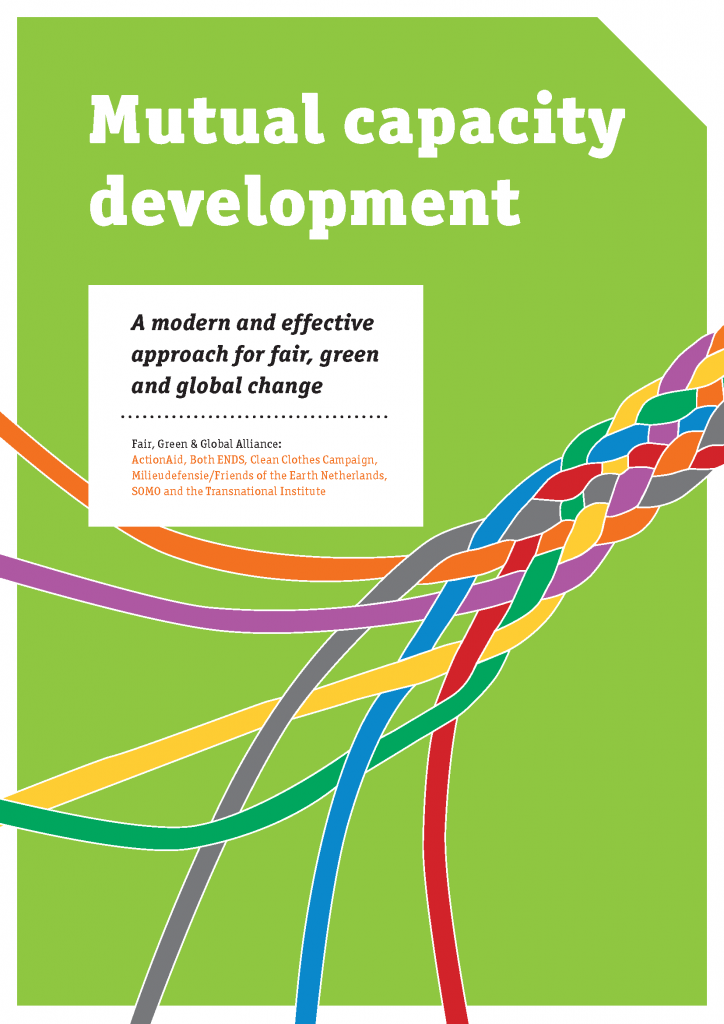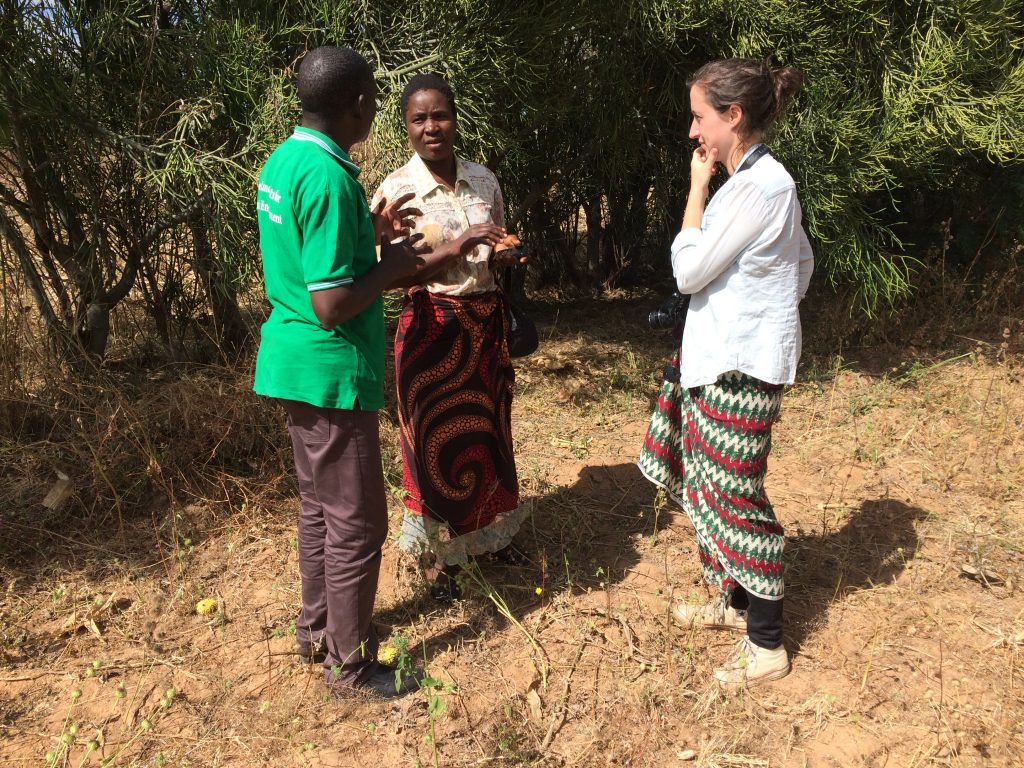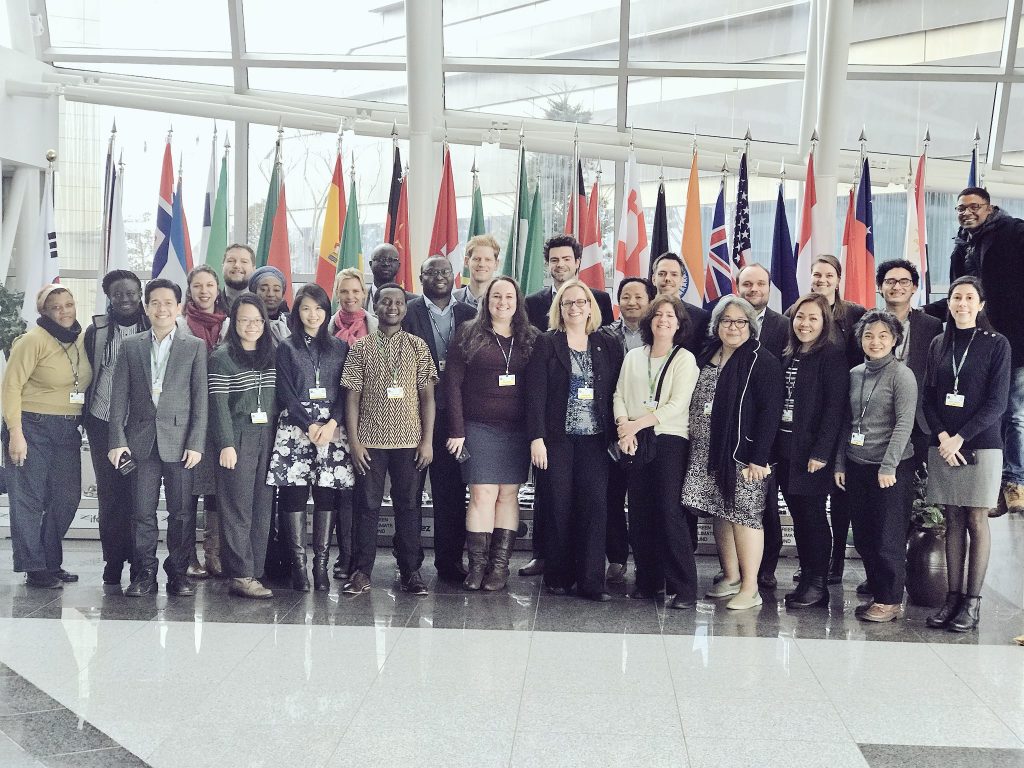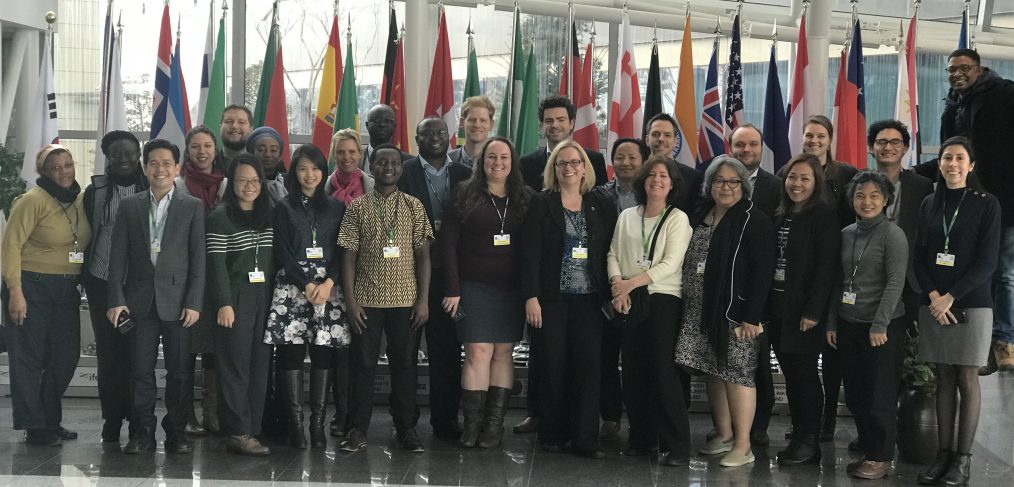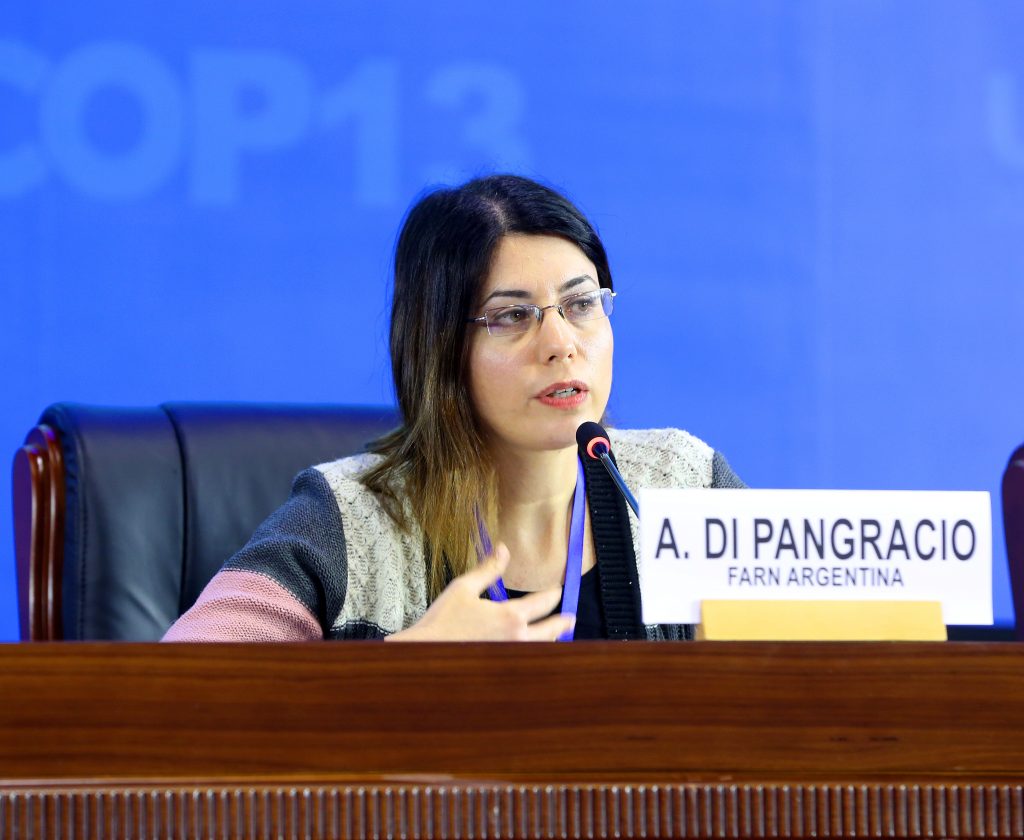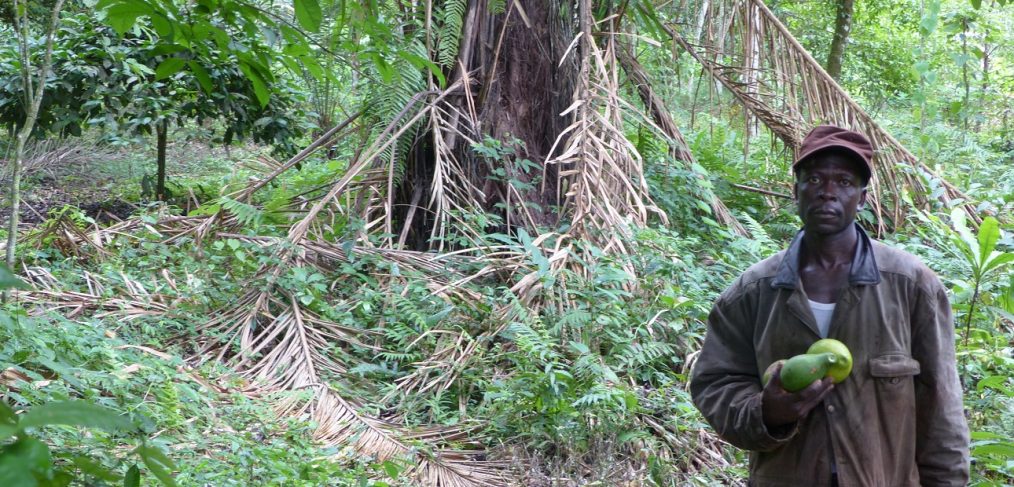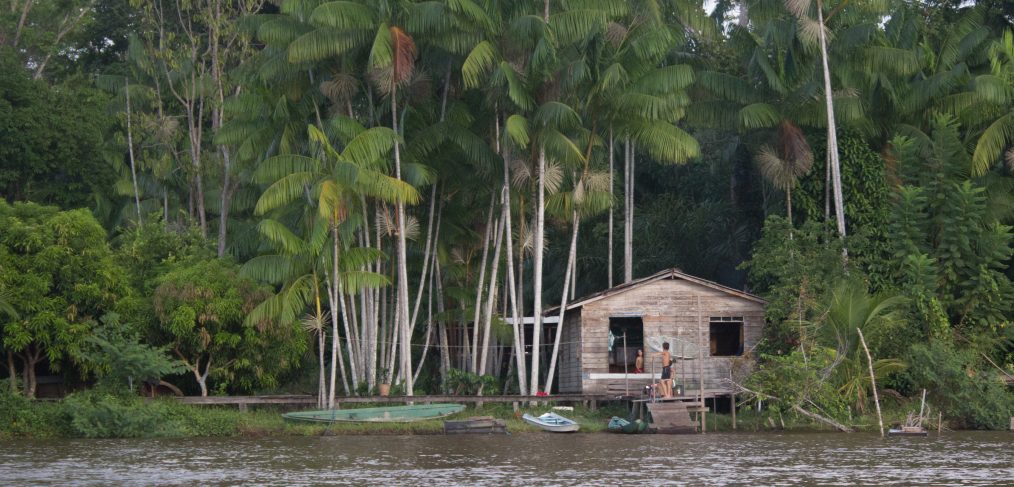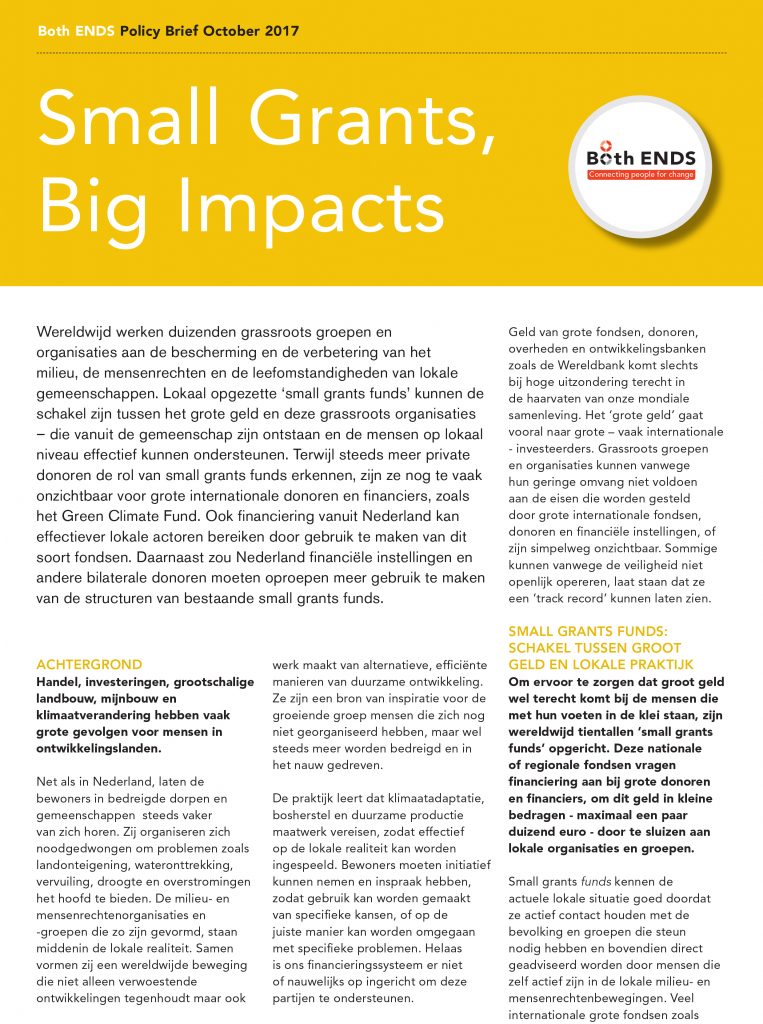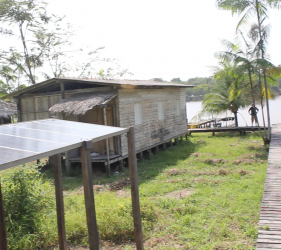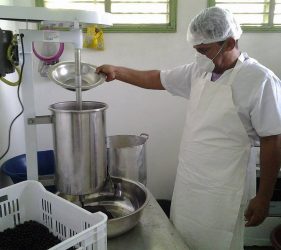Because of their close relationship with their living environment, local communities often have the best ideas for the sustainable use and management of land, water and forests. Over the course of many years, Both ENDS has encountered many inspiring examples of how to do this and wishes to make these alternatives available to others.
These alternatives are local initiatives that have proven their value in practice, and are supported by the communities and our partner organisations. They all start from respect for people and the planet.
Both ENDS has been working with our partners for many years to support and build alternatives. To boost this effort, in 2017 we defined four alternative approaches to the management of natural resources: Participatory Land-Use Planning (PLUP), the Negotiated Approach to water resource management, Rich Forests, and Farmer-Managed Natural Regeneration of drylands (FMNR). These four alternatives have already proven their worth on a smaller scale and in various contexts. In the coming years, we will intensify our efforts to promote, fund, scale up and replicate these alternatives.
INVOLVING COMMUNITIES IN LAND USE PLANNING
PLUP is an alternative, inclusive and participatory approach to land governance. It aims to empower communities to assert their rights to use, own and manage their land both in practice and in local and national policy dialogues. This especially concerns their rights to customary and communally-managed land. The approach can be used to prevent or resolve land-use conflicts, defend against land grabbing, plan for the sustainable management of natural resources, or provide a framework for inclusive land-use decision making.
Strengthening local people’s right to access and land use provides a foundation for communities to plan and invest in sustainable land-use practices. The recognition of these rights also provides an institutional shield against unwanted interference from external actors who do not fully respect the rights of local land users. In turn, sustainable land-use practices and collective land-based enterprises also provide an economic and social buffer against land grabs and the acquisition of communal lands by corporate actors. Read more about PLUP on our website: www.bothends.org/PLUP.
Both ENDS supports local CSOs to build the capacity of communities to strengthen land (use) rights through PLUP and to enhance the role of PLUP in regional, national and international policies. At the same time, Both ENDS has been collaborating with the National Community Mapping Association in Indonesia (JKPP) in discussions with the National Land Administration Agency
and Kadaster International (the international division of the Netherlands’ Cadastre, Land Registry and Mapping Agency) to formally recognise community mapping practices in official land administration processes.
In 2017, for example, Both ENDS initiated two new PLUP projects in West Kalimantan, Indonesia, to support four indigenous communities whose rights had been violated resulting from conflicts with encroaching oil palm plantations and overlapping government conservation areas.
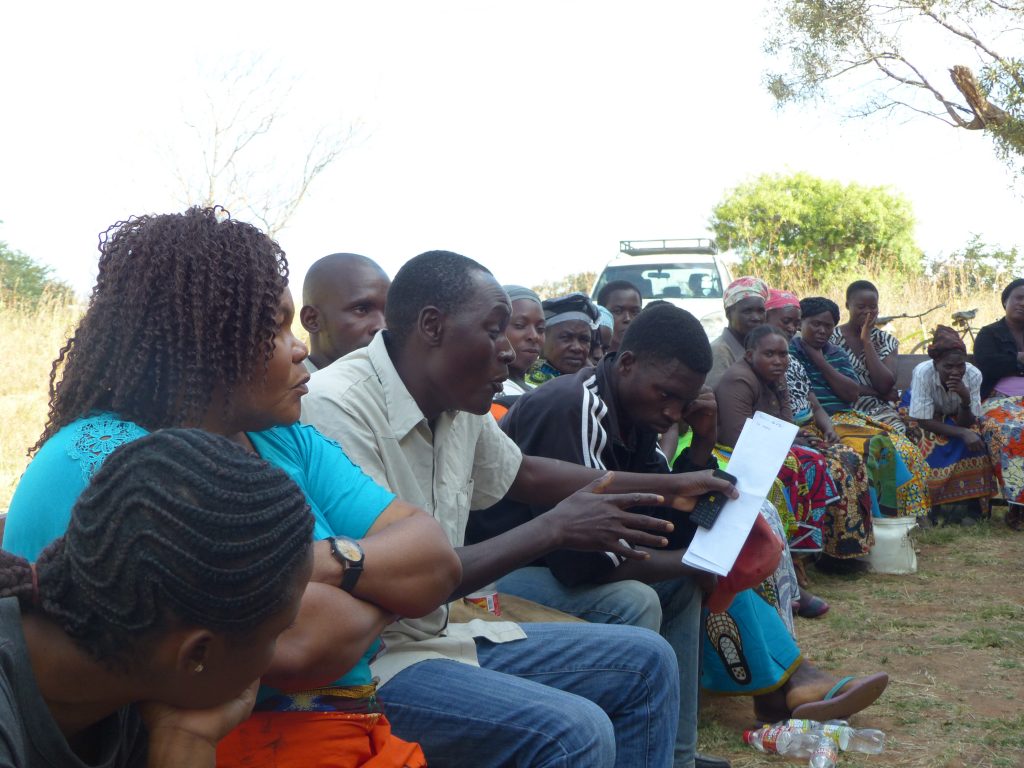
Community meeting in Monze, Zambia
COMMUNITY PARTICIPATION IN WATER RESOURCE MANAGEMENT
The Negotiated Approach promotes sustainable water resource management and aims to enable local communities to protect their rights and propose and negotiate viable long-term
strategies to alleviate poverty and ensure healthy ecosystems.
Access to water and land is essential for the rural poor. However, local communities often have poor access to fishing grounds, drinking water and fertile lands, and they are rarely involved in planning and decision-making. The Negotiated Approach is an instrument designed to correct this issue: it aims to create structural political space that will enable local people to acquire a long-term negotiating position over the planning and management of natural resources, especially water. Read more about the Negotiated Approach on our website: www.bothends.org/NA.
Both ENDS has been promoting the Negotiated Approach around the world since the first pilot projects started in 2006. For example, in the Shifting Grounds project we train this method to local communities and government officials in Bangladesh and India. In 2017, this led to an improved drinking water allocation mechanism in two villages in the peri-urban areas of Khulna, Bangladesh.
One of these villages was Hogladanga. Already in 2016, our partner JJS developed a social map of Hogladanga village together with people from the community.
The map pinpointed the places where severe water insecurity exists, and it also identified areas where there is a scarcity of drinking water.
In 2016 and 2017, this was followed by village ‘mango tree’ meetings, which has resulted in the formation of a core group of village representatives. Together with government representatives and water experts, these village representatives attended workshops on the Negotiated Approach, which enabled all parties to start developing a fair and sustainable water management plan.
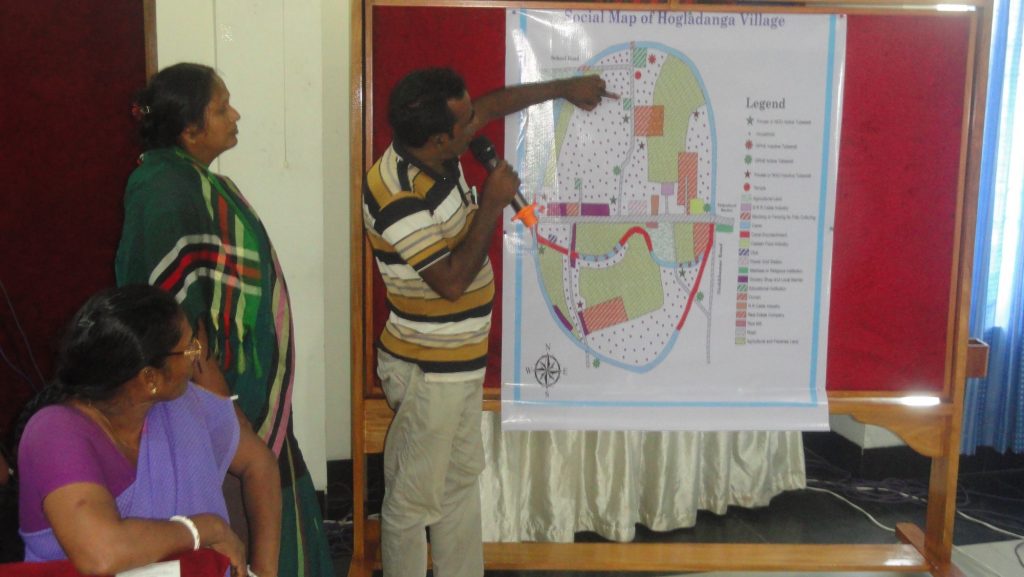
Social map of Hogladanga village, developed with people from the community.
RICH FORESTS: MAKING A LIVING UNDER THE CANOPY
Forests are crucial to the livelihoods of 1.2 billion people in developing countries. The forests enable people to pick fruits, nuts and berries, harvest honey and resin, gather herbs for use as medicine, find construction materials for their houses and collect firewood. Large tracts of forest land have disappeared in the past 20 to 30 years, causing millions of people to lose their essential resources and means of living.
But what if we managed to restore degraded land to its original state, or even better, to transform it into ‘rich forests’? Such forests not only provide a good habitat for plants and animals, but also enable local people to create sustainable livelihoods through the use and sale of forest products. Since the 1980s, our partners around the world have shown that this is feasible. They have created food forests, in which crops that do well in the climate and circumstances of that particular area, such as bananas, papayas, coffee beans, tea leaves, herbs, spices and rattan are cultivated in between the trees, yielding products that can be sold.
The Rich Forests initiative is an alliance of Both ENDS and two international networks that have been successful in transforming degraded land into productive food forests (Analog Forestry). Rich Forests’ objective is to help local producers improve the production and marketing of forest products and to link these producers to social entrepreneurs and investors.
In 2017, Rich Forests produced a partly animated video that presents the four basic steps of Analog Forestry: pilot sites, research, marketing and advocacy. The film was, and still is, shown to a wide audience of mainly entrepreneurs, policymakers and donors. In 2018, Both ENDS will put great effort into drawing up an acquisition plan for Rich Forests to prepare for the years to come.
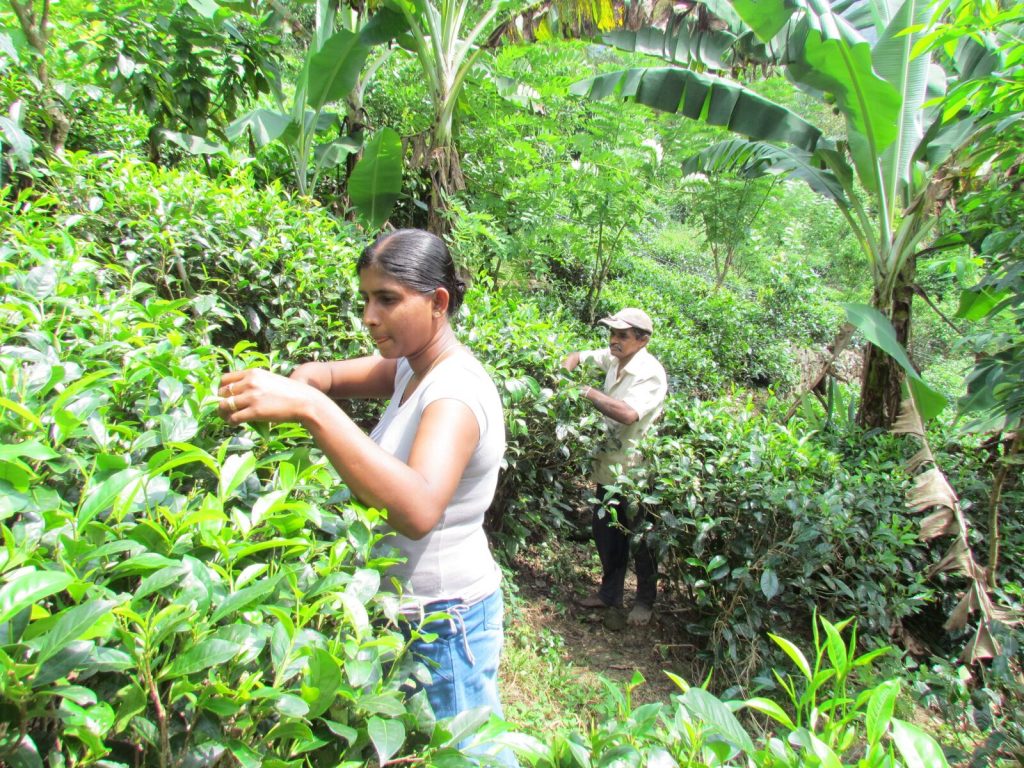
Picking tea from forest garden in Sri Lanka
REGREENING DRYLANDS
In the 1980s, male and female farmers in the south of Niger started restoring the fertility of their land using a traditional agro-forestry method that had long been forgotten. It uses the dormant ‘underground forest’ of seeds, roots and tree stumps still present in the soil: the shoots that spontaneously spring up are protected against cattle and uncontrolled tree felling, and special pruning methods are used to encourage the young trees to grow more quickly. Once they have matured, the trees offer protective buffers against sandstorms and erosion, and provide shade, fertilizer, cattle feed, tree products and wood for local people to use or sell. The fertility of the soil improves and water levels in wells, ponds and lakes rise, so that food crops can even be cultivated between the trees. Research has shown that a greener landscape generates not only more biodiversity but also better harvests – and thus more income and food security.
The method the farmers use has proven to be very effective, cheap and easy to apply. Both ENDS supports farmers and communities using this approach, which has been called Farmer-Managed Natural Regeneration (FMNR). By 2017, funding by the Turing Foundation had enabled farmers in 80 villages in the district of Dogonkiria, Niger to adopt this traditional agro-forestry method, and 11,000 hectares of land are currently regaining their fertility thanks to FMNR.
The results have been so promising that DOB Ecology, a large Dutch fund, has decided to provide financial support for the coming ten years. This is a great boost to efforts to re-green the whole Sahel region. Read more about our results on FMNR in chapter 3 and on our website.
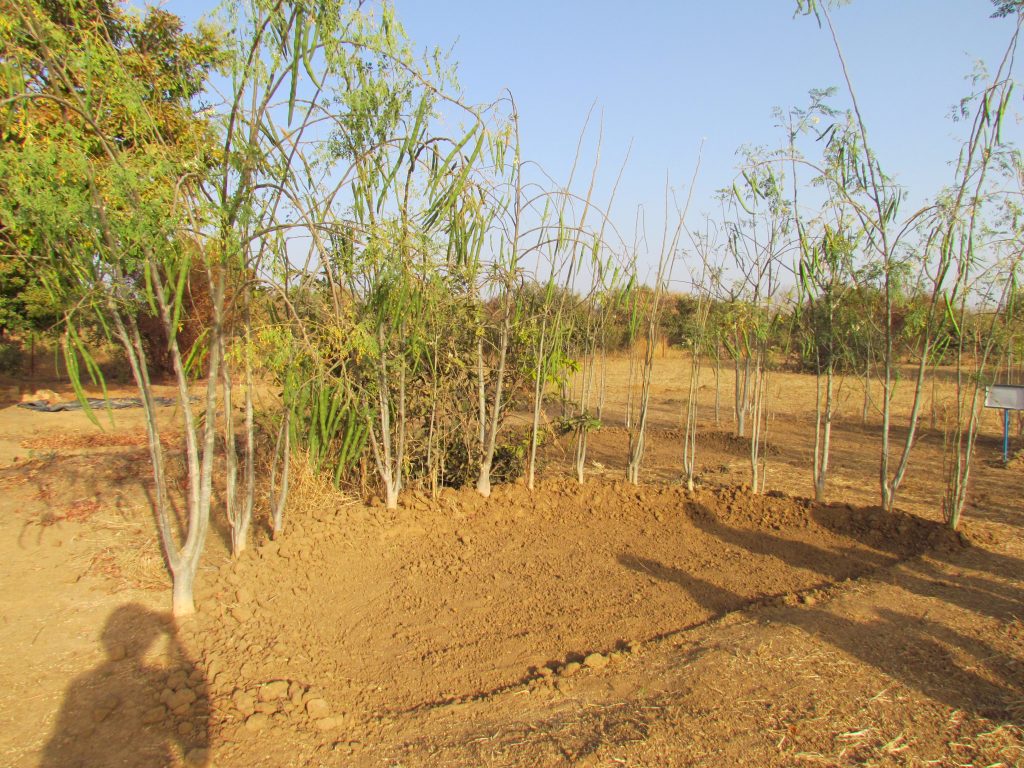
Regreening method ‘Demilune’ or ‘half moon’, to keep the soil moist

